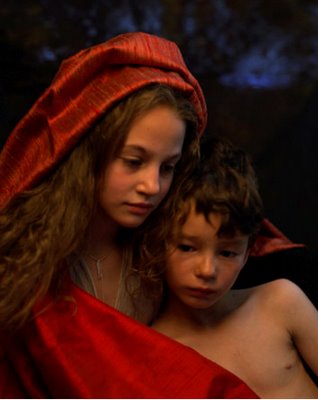
Angelika Rinnhofer
Education
1982-1985 Professional Apprenticeship Foto Bischof & Broehl Nuremberg, Germany
1980-1982 Fachoberschule für Gestaltung, Art School Nuremberg, Germany
Selected Exhibition
Oct 05 Group Exhibition-invitational, The Pocketbook Factory Hudson, NY
Sept 05 Group Exhibition-invitational, ‘Portrait’, The Woodstock Byrdcliffe Guild Woodstock, NY
Sept 05 Group Exhibition-invitational, ‘Regional Triennial of the Photographic
Arts’, Center for Photography at Woodstock Woodstock
May 05 Group Exhibition-invitational, Art in the Loft Millbrook, NY
April 05 First collaboration at Beacon Artist Union: ‘shadow echo:
proof I’m here’, installation with Peter Iannarelli Beacon , NY
Jan/Feb 05 This is not an Archive, Bard College, Dept of Curatorial Studies Annandale-on-Hudson, NY
Jan 05 Group Exhibition-inaugural show: Beacon Artist Union Beacon
Oct 04 Washington Gallery of Photography National Juried Show Washington, D.C.
July 04 Group Exhibition-invitational, Howland Cultural Center Beacon
Jan 04 Group Exhibition-invitational, Howland Cultural Center Beacon
2003 Solo Exhibition-invitational, The Framery Beacon
2001 Group Exhibition-invitational, Republic Plaza Denver
Two Person Exhibition-invitational,
Colorado Photographic Arts Center Denver
2000 Solo Exhibition-invitational, Auraria Library Denver
1999 Group Exhibition-invitational, Nikolai Fine Art New York
1998 Solo Exhibition-invitational, Goethe-Institut Los Angeles
1996 Group Exhibition-invitational, Photokina Cologne, Germany
1996 Group Exhibition, Internationale Photographentage Amberg, Germany
Awards and Grants
2005 Dutchess County Arts Council Individual Artist Fellowship Poughkeepsie, NY
2005 Light Work, Artist-in-Residence Program Syracuse, New York
1995 Kodak European Gold Award Stuttgart, Germany
1993 Annual AGFA-Gaevert/Photo Presse Cover Award Hann-Münden, Germany
Publications
2005 Chronogram Magazine, 9/05, “Backbone”
2005 Pulse, April 14-20, 2005
2004 SHOTS, The Portfolio Issue
2004 Photography Quarterly, Photography Now (Sarah Hasted Mann)
2003 Chronogram, Cover Page
2001 Denver Rocky Mountain News, Arts & Entertainment
Denver Rocky Mountain News, Critic’s Choice
Kodak Presse, “Gewinner des European Gold Award 1995”
Caroline Finkelstein, Germany
Rolling Stone, Deutsche Ausgabe
Photo Presse, 11. Ausgabe
Collections
Samuel Dorsky Museum of Art, SUNY New Paltz New Paltz, NY
Light Work Syracuse, NY
Artist’s Statement
Nuremberg, the city where Albrecht Dürer lived and practiced his art, is my hometown. Dürer’s paintings, etchings, and woodcuts have influenced me, from my first self-portrait in first grade to my historical photographs.
The true subject of my photographic work may be termed the question of representation.
My series “Menschenkunde” captures the lighting and composition of Renaissance painting. My inspiration comes from Leonardo da Vinci, Albrecht Dürer, Rembrandt, and Vermeer, painters famous for linking beauty and psychological insight – at least according to Jakob Burckhardt, the 19th century Swiss art historian responsible for establishing the Renaissance as the beginning of modern aesthetic sensibility. Burckhardt may have been right, but it is also true that his ideas on the Renaissance tell us as much about his 19th century culture as they do about early modern painters. In my portraits I try to show the ambiguity of historical portraiture.
My most recent project “Felsenfest” has greatly been shaped by a recent trip to Nuremberg. Each society and each ideology has martyrs but none depicts them like Christianity. Tortured saints are shown either while their agony is taking place, or after they endured pain and death and are now safe in heaven, still suggesting the ways of their suffering by carrying a palm fond and the torture device.
I create images that refer to these representations – their historical accuracy set aside. With “Felsenfest” I examine depictions of Christian martyrs. I hope to make the viewer aware of the subjectivity of art and history, and to evoke critical examination of images with these unusual depictions of well-knows icons. How important are facts, and how reliable are stories and legends?
In addition, I compare religion with science through art. In the 18th- and 19th centuries science became an Ersatz-religion for the Middle Class. Religion has had its heroes and victims, and so has science. In my images, religious icons are conversing with scientists, whose fields of research or experimentation are related to the method of the martyr’s way of torture and death.
“…Art is the only still unconsumed function that derives from a profoundly historical past but returns as the future, as the totality of self-aware-man.” (Joseph Beuys, 1985)
This is the contemporary tradition in which I understand my work.